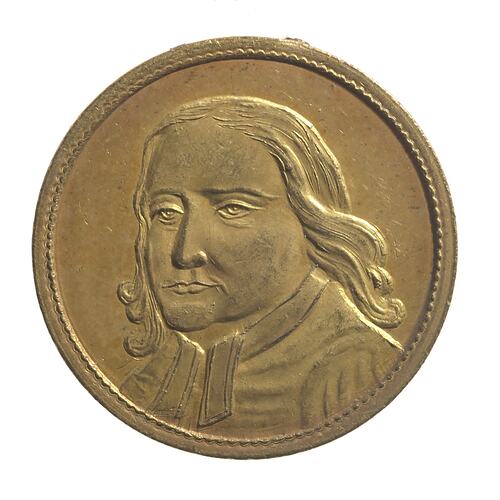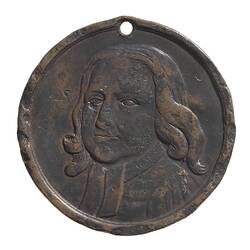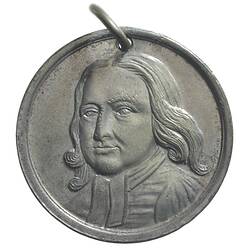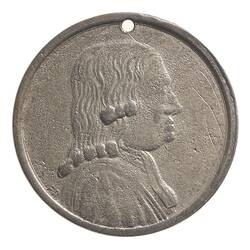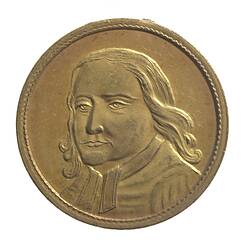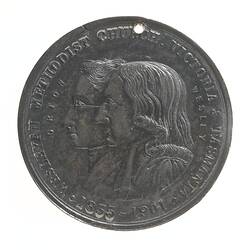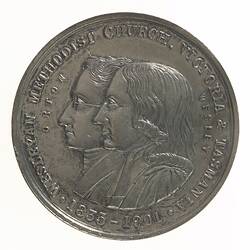John Wesley was born in 1703 in Epworth, Lincolnshire, England. He was one of the most significant figures in British social and religious reform in the 18th century. Wesley studied at Charterhouse School, then attended Oxford University on a scholarship from the age of 17. He graduated with a Master of Arts and stayed on as a tutor, eventually becoming a Fellow of Lincoln College. He and other students undertook Bible study and prayer so earnestly and methodically that they were nicknamed 'methodists'. They preached in the community, including prisons, conducted schools for poor children and cared for the sick. In 1728, at the age of 25, Wesley was ordained a priest of the Church of England. He and his brother Charles volunteered to go to America as missionaries to convert the native Americans, but the trip was a failure and they set sail back to England. During a violent storm Wesley was impressed by the behaviour of a group of Moravians, a Protestant German religious group: they fully trusted in God to keep them safe. On 24 May 1738 Wesley had a religious experience in Aldersgate Street meeting house, where he felt 'strangely warmed' by the love of God.
From then on Wesley and his brother travelled all over England preaching that a person could know God's grace fully and live a life based upon Christian love. For more than 50 years, Wesley rode rode over 225,000 miles on horseback. Assisted by lay preachers and non-ordained Bible students, he preached out of doors so that everyone, rich and poor, could hear him. There was strong opposition to his preaching. Mobs rallied against him, church bells were rung to drown his voice, a drunken crowd once burst into his house and a maddened bull was driven into a crowd he was addressing.
Wesley never had a parish of his own. In 1739 he established the 'New Room' in Bristol, the first ever Methodist Church in the world. His brother lived there for many years and trained preachers. Wesley founded an orphan house, a dispensary, a restaurant, an employment centre and several schools for the poor and miners' children. He set up London's first free clinic with qualified doctors to look after the poor. John Wesley and the Methodist church combined evangelical preaching with a social concern.
Wesley was, in many ways, a difficult man. He was a somewhat despotic ruler who expected followers to strictly adhere to his rules. He saw rain storms as God's punishment or an attack by the Devil. He didn't believe in mourning since the dead had gone to God, and after his evangelical conversion he considered all non-evangelicals 'almost Christians'. He generally disapproved of laughter, didn't think Christians should listen to secular songs, and certainly not dance to them, and expected men and women to sit separately in church. He disliked showy clothes and regretted not prescribing a uniform to his followers.
Wesley was a hard worker, and wrote or translated over 400 books. His brother Charles became the world's most prolific hymn writer with over 6,000 published hymns.
Wesley lived to be almost 88, and kept up his travelling to the end. He died on 2 March 1791. His last words were 'God is with us'. Ten thousand people filed past his coffin, and his funeral had to be held before dawn because of unmanageable crowds.
References:
Christian Democratic Party website http://www.cdp.org.au/fed/mr/030702g.asp, accessed 1 Dec 2003
Steve Tomkins (Wesley biographer) on John Mark Ministries website http://www.pastornet.net.au/jmm/afam/afam0235.htm, accessed 1 Dec 2003.
More Information
-
Keywords
-
Localities
-
Authors
-
Article types
